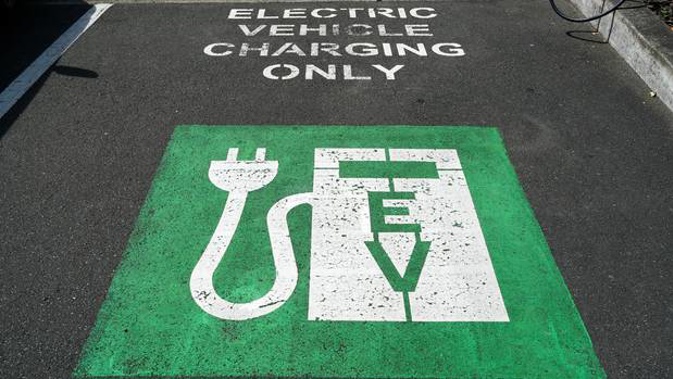
New Zealand broke two records for electric vehicles in the month of December, capping off a year of surging demand for clean cars.
The Government is claiming victory for the popularity of low and zero-emissions cars, having heavily incentivised their uptake with policies like the clean car discount, which takes as much as $8625 off the price of a new clean vehicle - a discount paid for by levies of up to $5175 on the price of a polluting car.
The policy is so successful at driving the uptake of EVs and suppressing the uptake of petrol vehicles, the Government may have to rethink the level of discounts and fees - lowering one or raising the other.
In December 2022, just over 20 per cent of all new vehicles were fully battery-electric, a record.
The same month over a quarter of new passenger cars, a category that excludes vans and utes, were fully battery electric - also a record.
Overall, in 2022, 16,002 new and 3817 used import battery EVs were bought in New Zealand, and 7,307 new and 1955 used import plug-in hybrids were bought, according to the Ministry of Transport, which collects the data.
In December 2022, Kiwis purchased 2264 new and 185 used import battery EVs and 389 brand new and 161 used import plug-in hybrids.
Overall, in the new vehicle market, which is where most growth in EVS occurred battery EVs grew from 6 per cent of total vehicle sales to about 15 per cent in 2022.
The share of new petrol cars registered appears to be on the wane.
For nine months of the last year, new petrol passenger cars counted for under half of total passenger cars sold, compared with previous years when nearly every month saw at least half of all new passenger cars sold be powered with petrol.
Transport Minister Michael Wood, speaking of the year to November said there were “now more than 62,000 EVs on our roads, 60 per cent more than at the end of 2021.
“It’s great to see more and more people contributing to Aotearoa New Zealand’s climate efforts by making the switch to EVs,” Wood said.
Despite the flurry of EV purchases, low-emission vehicles still account for a tiny slither of the total passenger vehicle fleet. Ministry of Transport data shows just over 8 per cent of the total light vehicle fleet is classed as “low” emission, most of which are petrol or diesel hybrids.
Only a fraction of the national fleet are fully-electric vehicles.
The clean car discount is self-funding, meaning the discounts do not come from general taxation, but from fees collected on polluting vehicles.
A challenge for the Government is that the amount of money collected in fees is about half the amount paid out in discounts when comparing the period from when the scheme became fully operational on April 1.
Wood has previously said he is keeping an eye on the amount received and paid out under the scheme and said that any changes made to it would not kick in until after April 1 this year.
From April 1 to December 31, 2022, the total amount of fees received was over $105.1m.
The total amount of rebates paid out was over $203.3m over the same period.
/cloudfront-ap-southeast-2.images.arcpublishing.com/nzme/TOD4MNHWMMZR2MFDZGUCJFHN5Y.jpg)
National's Simeon Brown opposes the Government's clean car discount. Photo / Angus Dreaver
National’s transport spokesman Simeon Brown said the scheme was “unsustainable” and urged the Government to drop it. He said National would not back a continuation of the scheme, which it calls a “ute tax” but supported emissions standards in some form.
“Whilst the numbers indicate there has been a large number of people taking up the subsidies, the numbers also indicate it is unsustainable and continues to subsidise people who can already afford to buy expensive Teslas,” Brown said.
“We don’t support the clean car discount scheme and the reverse Robin Hood subsidies for people who can already afford EVs,” Brown said.
He’s supported in this by Act’s transport spokesman Simon Court, who is also keen to scrap the scheme, calling it a “fiscal hole”.
However, the Green Party’s transport spokeswoman Julie Anne Genter, who designed an early version of the scheme as associate transport minister in the first term of the current Government, told the Herald last year that the Government could go further
When the issue first arose last year she said the scheme was working to bring more low-emissions vehicles into the country, “which was exactly the goal”.
“If the rebates are greater than the fees, that means it has been even more effective than expected at incentivising a positive change in vehicle purchases,” she said.
Genter said that in other countries, fees had gone up on polluting cars to continue funding rebates on clean cars.
“Of course, at that point, it’s time to consider a shift to slightly higher fees, to be able to keep up the pace and level of rebates, so we continue decreasing the average emissions from the vehicles we bring into New Zealand.
“That is how the policy is designed, and it has been very successful in other countries. In France, for example, over 15 years they have moved to much higher fees on polluting vehicles,” Genter said.
Take your Radio, Podcasts and Music with you









